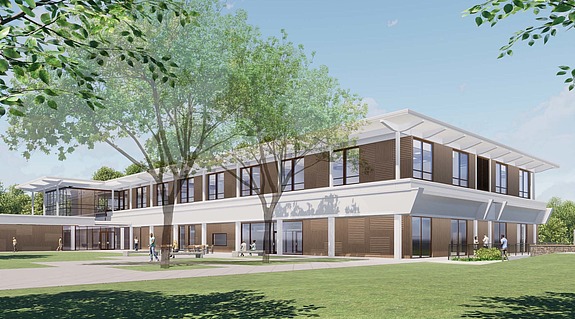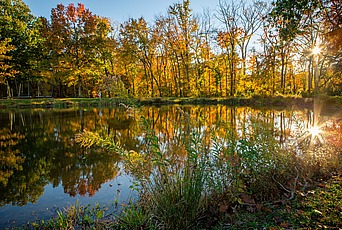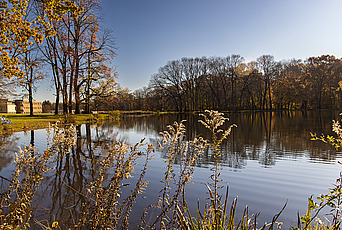With Collections at Risk, IAS Advances Plan to Preserve and Expand Library

The Institute for Advanced Study will restore and expand its Historical Studies - Social Science Library, providing enhanced space and support for its scholars, while fostering discovery at the intersection of traditional fields and exploration in emerging disciplines.
The project, estimated to be completed in 2027, will restore the Library, while providing new spaces where scholars can collaborate and share ideas. It will also create additional office space for the Institute’s renowned scholars, including some who now must work in temporary structures.
“For a place dedicated to discovery, there is nothing more important than preserving what we know, and providing the kinds of spaces necessary for the possibilities of thought and the advancement of knowledge,” explained IAS Director and Leon Levy Professor David Nirenberg. “The Library restoration and expansion will provide our Faculty and Members with an environment in which they can explore the intellectual frontiers of both established and emerging fields.”
The library expansion is made possible by a generous gift from Trustee Mark Heising, who said it augments the Institute’s momentum, while reinforcing a commitment to its mission.
“This project allows us to create the spaces our scholars need to do their best work, whether they are deep in their own research in their offices or in the historic reading rooms that have hosted so many generations of distinguished Faculty, or exchanging ideas with collaborators,” Heising said. “This is an investment in the unique community of discovery that the Institute cultivates.”
In addition to expanding and revitalizing the spaces for scholars, the project will protect and preserve significant collections, including rare books and manuscripts.
“The materials we’ve been entrusted with are now at risk, due to both ultraviolet light damage and the persistent rain and snow leakage that previous repairs have failed to prevent,” said Librarian Marcia Tucker. “The proposed expansion offers an elegant solution that embraces the best of the library’s history while creating a state-of-the-art facility for the next century.”
Architect Frances Halsband, FAIA, who undertook a detailed independent analysis of the building’s history and future opportunities, wrote that covering the roof would provide the best way to protect the collections and preserve the building, while restoring “its original elegance and serenity.” Halsband also noted that adding a second story would fulfill the original vision of former Director J. Robert Oppenheimer, who commissioned the design of the library from Harrison & Abramovitz in 1960. The current project, designed by Kimmel Bogrette Architects, is anticipated to obtain approvals and building permits by spring 2025.
The project will make the library significantly more efficient and environmentally sustainable, substantially reducing heat loss, cooling needs, and nighttime light pollution. By expanding without enlarging the building’s footprint, it will also help the Institute to steward its renowned grounds, which are important not only to the IAS community, but also to neighbors and the larger Princeton community.
“Even as our scholars pursue solutions to challenges such as climate change, the Institute has a duty to conduct its business as a good global citizen and good neighbor,” said Trustee Emeritus Roger W. Ferguson Jr., who also donated to support the project. “This effort lives up to that core value of the Institute.”
About the Institute
The Institute for Advanced Study has served as one of the leading independent centers for theoretical research and intellectual inquiry since its establishment in 1930, advancing the frontiers of knowledge across the sciences and humanities. From founding IAS Faculty Albert Einstein, Erwin Panofsky, and John von Neumann to influential figures Emmy Noether, George Kennan, and J. Robert Oppenheimer to the foremost thinkers of the present, IAS is dedicated to enabling independent inquiry and fundamental discovery.
Each year, the Institute welcomes more than 250 of the world’s most promising post-doctoral researchers and scholars who are selected and mentored by a permanent Faculty, each of whom are preeminent leaders in their fields. Among present and past Faculty and Members, there have been 35 Nobel Laureates, 44 of the 62 Fields Medalists, and 23 of the 27 Abel Prize Laureates, as well as winners of the Pulitzer Prize in History; the Wolf, Holberg, and Kluge prizes; and many MacArthur and Guggenheim fellows, among other honors.


